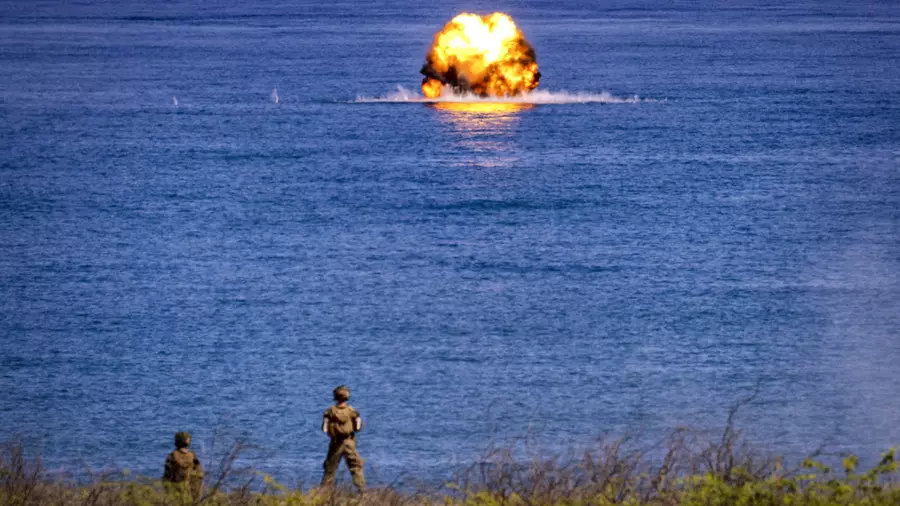Beijing’s Warning to Manila Against Hosting US Intermediate-Range Missile Systems: The Impact on Regional Arms Race and South China Sea Tensions.
Chinese Foreign Minister Wang Yi has warned the Philippines against hosting US intermediate-range missile systems in the country, expressing concerns that this move could trigger an arms race in the region. The comments were made during a meeting with his counterpart, Enrique Manalo, on the sidelines of the ASEAN summit in Vientiane, Laos.
The potential deployment of US intermediate-range missiles is particularly concerning for Beijing since it perceives this as an escalation in the ongoing tensions between the two countries. According to Wang Yi, the Philippines has “repeatedly violated the consensus of both sides and its own commitments,” which could further strain relations between the two nations.
Washington had deployed Typhon launchers capable of firing Standard SM-6 and Tomahawk missiles to the Philippines in April, but these systems have not been used in live-fire exercises and are set to be withdrawn “in the next several months,” as per an announcement by Manila earlier this month.
The remarks from China’s top diplomat come amid efforts by Beijing and Manila to ease tensions in the disputed waters of the South China Sea, a major waterway which is the subject of overlapping territorial claims by multiple countries. The two nations have had repeated run-ins in these troubled waters since late last year, after the Philippines ramped up activities around the BRP Sierra Madre, an old tank landing vessel deliberately grounded in 1999 off the disputed Second Thomas Shoal and used by Manila as an outpost.
Earlier this month, Beijing and Manila reached a “provisional agreement” on resupply missions to the vessel, with the Chinese Coast Guard confirming that the Philippine vessel carried only humanitarian living necessities during its first run under the deal. However, the Philippines has accused China of “mischaracterizing” the agreement, stating that instead of acknowledging how two countries were able to manage their differences to avoid miscalculation and misunderstanding, Beijing’s spokesperson chose to misrepresent what had been agreed upon between the Philippines and China.
As the situation in the South China Sea remains delicate, any moves that could escalate tensions and trigger an arms race are viewed with concern by all parties involved. It is crucial for both Beijing and Manila to maintain open lines of communication and work towards resolving their differences peacefully, for the sake of regional stability and security.

